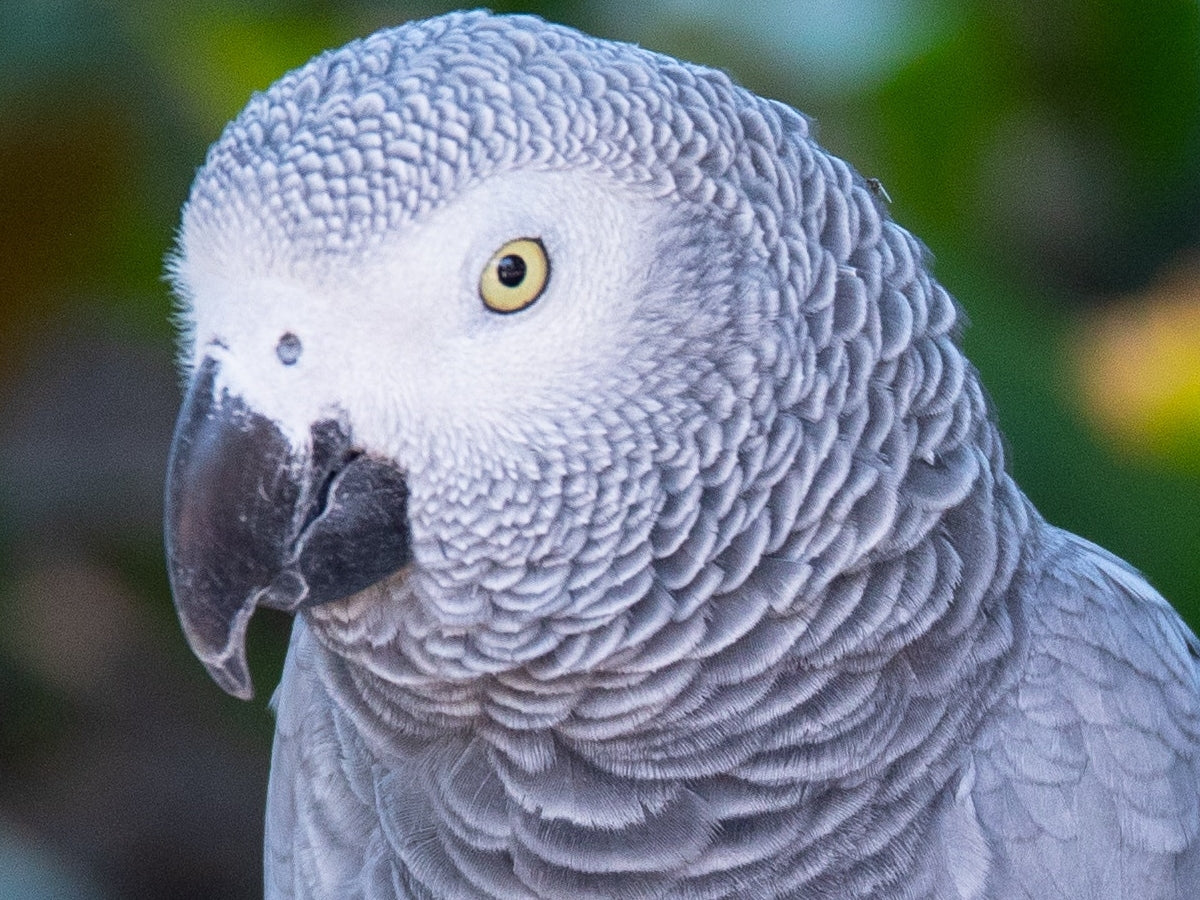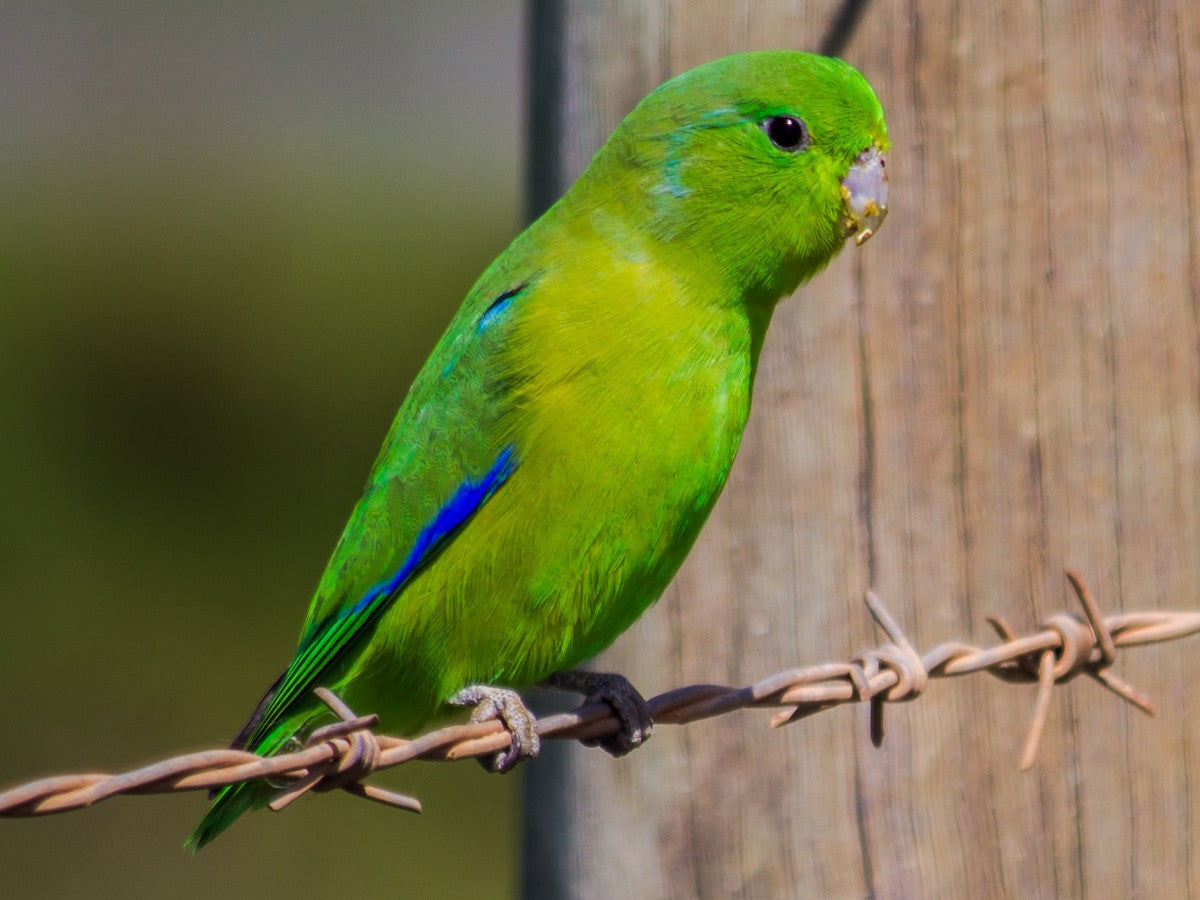The beautiful African grey parrot is considered one of the best talkers and it is understandably one of the most popular pet birds in the US. We, at BirdSupplies.com have two grey's. Smokey is a 20 year old Congo and Timmy is an 18 year old Timneh.
The two most popular subspecies of the African grey parrot, the Congo grey and the Timneh grey (Psittacus erithacus timneh) have a very similar appearance, but the West African timneh grey is smaller, with darker, charcoal- gray plumage and a pinkish upper mandible and maroon tail compared to the battleship gray and bright red tail of the Congo grey.
The care and feeding requirement of both birds are the same, and both can learn to mimic sounds and the human voice with amazing clarity. More than any other species, the African grey parrot can mimic the exact voice of individual people, while Amazon parrots, macaws and cockatoos and other parrots speak in a more generic "parrot voice."

African grey Food
For such a popular species, surprisingly little is known about African grey food in the wild, although studies do suggest a range of foods and feeding behaviors. Research by the Rainforest Alliance confirms that wild African greys food is much like many parrot species. Wild African greys climb up trees from branch to branch, instead of flying, to collects seeds, nuts, fruit and berries.
The vegetarian diet favors the outer layer of the oil palm nut and the red berries from the Cola tragacantha plant. Wild African grey food also contain grains and African greys have been known to do considerable damage to corn crops in western Africa. A paper (Juniper and Parr, 1998) published in the International Non-Detrimental Findings (NDF) Workshop at the Convention of International Trade In Endangered Species (CITES) claims the species’ preferred habitat is moist lowland forest, but it is also found up to 2,200 meters altitude in the east portion of its range. In this range, the birds feed on Elaeis palm fruit.

But what does that mean to you? Providing African grey's with the best possible diet can pose some challenges if the bird is unaccustomed to a range of fruits, veggies and organic grains. As most owners of these birds know, greys resist change and can become fearful of new items in their environment--including new foods. Fortunately, most grey owners these days own hand-fed and -raised greys that were produced in captivity, and these birds are more emotionally stable than their wild-caught counterparts. This being the case, they were raised eating fresh vegetables, fruits and pelleted diets like Harrison's Bird Food in addition to a sensible portion--if any--of seeds, sprouts and nuts. Gone are the days of rigid seed-junkie wild-caught African greys that would stubbornly refuse any nutritional, research based pellet bird food diet and only reluctantly eat some other fresh foods.
Pet African greys have been known to suffer from hypocalcemia (low blood calcium), but feeding excessive amounts of calcium to this species is controversial. Certainly, it can be prudent to feed a fresh supply of calcium-rich greens and fruits (green beans, soy beans, broccoli, rhubarb, orange slices, dried plums and apricots, etc.). Another alternative is to offer your bird a water-soluable calcium supplement such as Avitech Cal-D Solve.
A research based parrot pellet like Harrisons Bird Food is ideal as the base of African grey food. A selection of fruits and vegetables as well as soaked beans, sprouts and a small portion of calcium-rich seeds and nuts (almonds, hazelnuts, pine nuts, etc.) will provide nutrition and mental stimulation to these highly intelligent birds.
These are many commercial diets on the market that will serve the African grey owner well. Crazy Corn mixes as part of the diet are very nutritious, as are the formulated diets by Harrison's Bird Diets and supplements by Volkman Bird Foods.
When feeding a pet African grey, remember the bird's keen intelligence and appreciation for mental stimulation. Consistently feeding a range of nutritious foods is the first step in keeping these birds happy and healthy.
Comments? Let us know about your Grey's eating habits.





